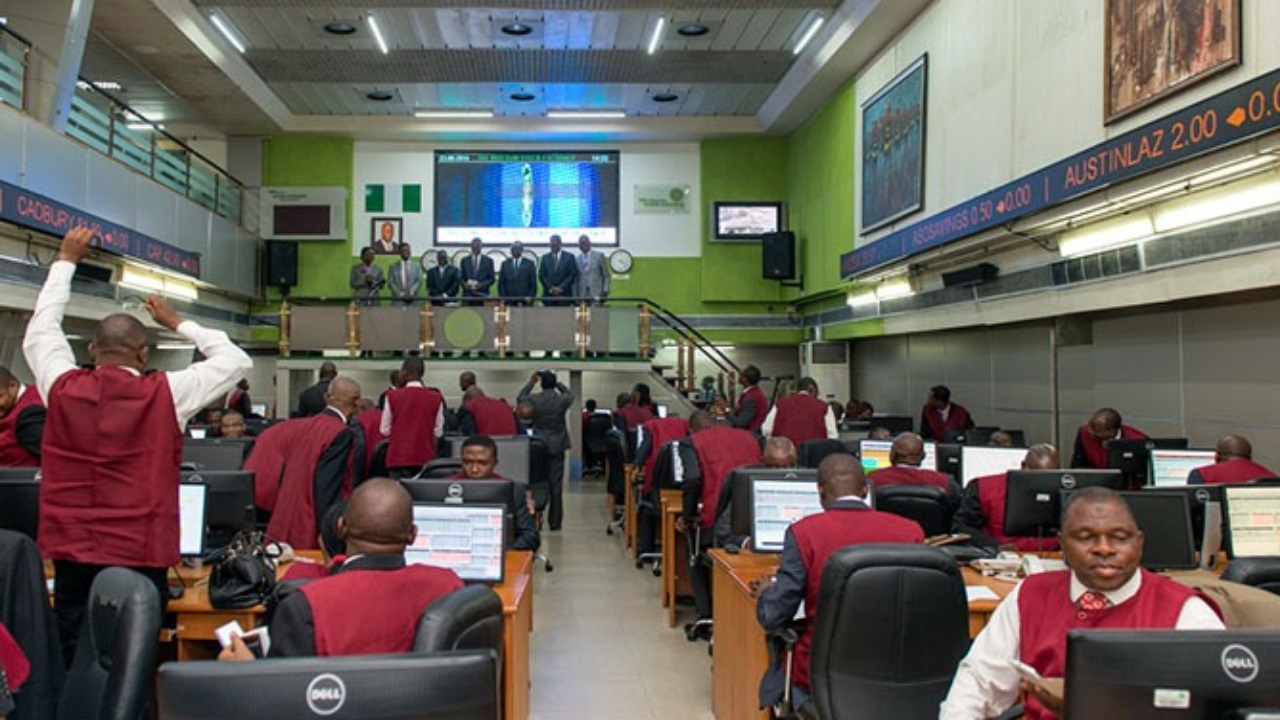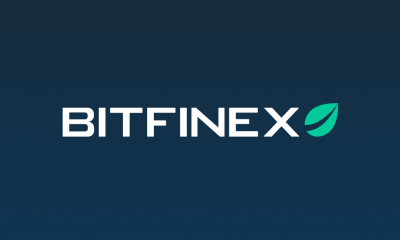Economy
Emerging Markets and Debt Recovery: What Creditors Should Know

Expanding into emerging markets offers businesses new revenue streams, access to growing consumer bases, and competitive advantages. However, it also presents heightened financial risks, especially when it comes to debt recovery. While these markets provide growth potential, they often come with legal, cultural, and operational complexities that make recovering overdue payments more difficult compared to established economies.
Inconsistent legal frameworks, political instability, fluctuating currencies, and a lack of transparency in credit information are just some of the barriers creditors face. Understanding these risks and developing a tailored approach to credit control is essential for protecting financial interests when operating in regions such as Latin America, Southeast Asia, Africa, and parts of Eastern Europe.
Understanding the Risk Landscape
Emerging markets are attractive because they offer opportunities for businesses to scale quickly. But these markets are also more vulnerable to economic shocks, regulatory changes, and enforcement challenges. Legal systems in many of these countries are underdeveloped or biased toward domestic businesses, making cross-border debt collection a slow and uncertain process.
Creditors must also deal with limited availability of reliable financial data. Many businesses in emerging markets operate with minimal disclosure, making it difficult to assess creditworthiness accurately. Traditional credit reporting agencies may not have sufficient coverage or updated records, forcing creditors to rely on informal references or local partnerships.
Legal Barriers to Enforcement
Enforcing debt collection in emerging markets is complicated by jurisdictional differences. Many countries require foreign creditors to re-litigate their claims locally, even if a judgment has already been secured in the creditor’s home country. Recognition of foreign judgments is not guaranteed unless supported by bilateral or multilateral treaties, which are often lacking or ineffective.
Even when legal action is possible, local courts may be slow, inefficient, or influenced by corruption. Navigating these systems requires specialized knowledge of local laws, court procedures, and enforcement mechanisms.
Currency and Payment Risks
Another critical factor is currency risk. Emerging markets frequently experience currency fluctuations and inflation, making it harder for debtors to pay in stable currencies like the US dollar or Euro. Some governments impose capital controls that limit the ability to transfer funds abroad, trapping foreign creditors in long delays or forcing them to accept payment in devalued local currencies.
To mitigate these risks, creditors often price contracts in stable currencies and include currency adjustment clauses to protect against volatility. However, even well-drafted contracts can be difficult to enforce if local laws favor domestic businesses over foreign suppliers.
Cultural and Commercial Practice Differences
Debt collection strategies that work in developed economies may not be suitable for emerging markets. Business practices in these regions often rely on personal relationships, trust-building, and informal negotiation rather than strict contractual enforcement. Aggressive collection tactics can damage relationships and reputations, making future business difficult.
Successful creditors typically adopt a relationship-based approach, working through local intermediaries or partners who understand the cultural context and can negotiate payment terms effectively without escalating disputes too quickly.
Strategic Risk Management Approaches
Mitigating debt recovery risks starts with preventative measures. Comprehensive due diligence, including background checks, financial reviews, and credit assessments, should be standard practice. Contract terms should be clear, specifying jurisdiction, governing law, payment currency, and dispute resolution methods such as arbitration.
Credit insurance and trade finance solutions can offer additional protection, especially for large or high-risk deals. These financial products help transfer risk away from the creditor and ensure partial recovery even in the event of default.
Monitoring client behavior throughout the relationship is equally important. Early warning signs—such as delayed payments, changing order patterns, or communication breakdowns—should trigger internal reviews and proactive collection efforts before the situation deteriorates further.
Leveraging Local Expertise
Working with local debt collection agencies or law firms is often the most practical way to navigate complex recovery processes in emerging markets. These partners have the local knowledge and networks necessary to apply the right pressure, negotiate settlements, and enforce claims through appropriate legal channels.
While local partners come with added costs, their expertise often increases the likelihood of successful recovery and reduces the risk of missteps that could harm the business relationship or lead to legal complications.
Emerging markets present a compelling opportunity for business growth, but creditors must approach them with caution and a well-defined risk management strategy. Debt recovery in these regions is rarely straightforward, and success depends on understanding local legal systems, currency risks, and cultural practices.
By adopting a proactive approach that combines thorough due diligence, strong contract management, and local expertise, businesses can protect their financial interests while continuing to benefit from the opportunities these markets offer.
For businesses seeking professional support in navigating these challenges, partnering with an experienced international debt collection agency like cisdrs.com can provide the legal and operational expertise needed to recover debts effectively across diverse and complex markets.
Economy
Oando Plans Aggressive Drilling Program After 267% Rise in FY24 Net Profit

By Dipo Olowookere
Shareholders of Oando Plc may get more value for their money in the 2025 financial year as the integrated energy company intends to execute some strategies, including an aggressive drilling program, designed to yield positive results.
The chief executive of the firm, Mr Wale Tinubu, while commenting on the financial performance of the organisation for the 2024 fiscal year, said “2025 will be our year of execution.”
Last year, Oando impressed investors with a 44 per cent rise in revenue to N4.1 trillion from the N2.9 trillion recorded in the preceding year, with the post-tax profit up by 267 per cent to N220 billion from N60 billion in 2023.
In the upstream segment of the business, Oando’s production went up by 3 per cent to 23,727 barrels of oil equivalent per day, comprising crude oil production, which rose by 27 per cent to 7,558 barrels per day, as NGL production and gas decreased respectively by 35 per cent to 156 bpd, and 5 per cent to 16,013 boepd.
As for the downstream, Oando’s trading subsidiary sold 20.7 million barrels of crude oil in 2024, 37 per cent lower than what was recorded a year earlier. This was attributed to structural changes in the Nigerian oil market.
Additionally, refined product volumes declined by 64 per cent to just over 599 kMT, due to weakened domestic demand, driven by the challenging macroeconomic in-country.
“The year 2024 was a defining year for Oando, with the successful acquisition and integration of NAOC marking the culmination of a decade-long strategic growth journey which has significantly deepened our upstream portfolio, resulting in our assumption of operatorship of the OML 60–63 series and the doubling of our working interest in the assets from 20 per cent to 40 per cent, as well as our 2P reserves from 500 million barrels of oil equivalent to 1 billion barrels,” Mr Tinubu stated.
He said this year, “Our key priorities shall include unlocking synergies from the acquisition, addressing above-ground security risks through the implementation of a revamped security framework aimed at curbing the persistent theft of oil, cost optimization, balance sheet restructuring, enhancing operational efficiency, and leveraging technology to improve productivity across our operations.”
“In our bid to ramp up production towards achieving our target of 100,000 bopd and 1.5 tcf of gas by 2029, we shall pursue a dual-track approach of rig-less interventions and well workovers, complemented by an aggressive drilling program.
“We are excited by the opportunities that lie ahead and remain committed to delivering enhanced shareholder returns, shared prosperity and maintaining our position as a leading player in Africa’s evolving energy landscape,” he added.
Economy
Equity Investors’ Wealth Grows N1.158trn on Sallah Eve Trading Session

By Dipo Olowookere
The domestic stock market appreciated by 1.63 per cent at Thursday’s trading session ahead of the Eid-El Kabir (Sallah) break on Friday and Monday.
Investors were in high spirits yesterday, with bargain-hunting dominating the Nigerian Exchange (NGX) Limited because of the renewed confidence in the market.
Consequently, the market capitalisation closed higher by N1.158 trillion to N72.276 trillion from the preceding day’s N71.118 trillion and the All-Share Index (ASI) increasing by 1,835.02 points to 114,616.75 points from 112,781.73 points.
Business Post reports that the commodity index gained 2.96 per cent, the energy space improved by 2.73 per cent, the industrial goods sector surged by 2.37 per cent, the banking counter rose by 2.21 per cent, the insurance industry soared by 1.31 per cent, and the consumer goods index went up by 1.02 per cent.
It was a busy session on Customs Street on Thursday due to strong appetite for local equities, with the trading volume, value and number of deals spiking by 144.40 per cent, 104.27 per cent, and 21.72 per cent apiece.
A total of 1.5 billion stocks valued at N33.5 billion exchanged hands in 16,410 deals during the session versus the 598.2 million stocks worth N16.4 billion traded in 13,482 deals at midweek.
Fidelity Bank was traders’ toast yesterday, leading the activity chart with the sale of 829.7 million equities for N16.0 billion, followed by Legend Internet, which exchanged 180.3 million units for N1.0 billion.
Further, Zenith Bank transacted 62.8 million shares valued at N3.1 billion, Japaul traded 34.8 million equities worth N69.6 million, and GTCO sold 30.9 million units valued at N2.2 billion.
Investor sentiment remained bullish during the trading day after the bourse ended with 40 appreciating equities and 22 depreciating equities, representing a positive market breadth index.
Champion Breweries and NGX Group gained 10.00 per cent each to sell for N7.70, and N39.60 apiece, MTN Nigeria appreciated by 9.99 per cent to N319.20, Oando soared by 9.96 per cent to N56.85, and Morison Industries chalked up 9.90 per cent to trade at N3.22.
On the flip side, Northern Nigeria Flour Mills depreciated by 9.97 per cent to N125.05, ABC Transport crashed by 9.77 per cent to N2.40, Legend Internet weakened by 9.49 per cent to N5.34, Livestock Feeds soured by 7.82 per cent to N8.25, and Omatek deflated by 7.59 per cent to 73 Kobo.
Economy
Renaissance Daily Crude Production Rises After Shell Assets’ Acquisition

By Adedapo Adesanya
Renaissance Africa Energy Company Limited says it has ramped up crude oil production to over 200,000 barrels per day, following its recent acquisition of Shell Petroleum Development Company’s (SPDC) onshore assets in Nigeria.
Recall that in the first month, it announced a 40 per cent increment.
The update came during a high-level courtesy visit by executives of the firm to the Minister of Finance and Coordinating Minister of the Economy, Mr Wale Edun, in Abuja.
The Renaissance delegation was led by its Chairman, Mr Layi Fatona, and the Managing Director, Mr Tony Attah.
Speaking, Mr Fatona expressed delight that local companies were leading the country’s energy sector.
He said, “This is a proud moment for Nigerian enterprise. Our successful transition and scale-up of production show that indigenous companies can lead the energy conversation in this country and deliver results that matter to the economy.”
On his part, Mr Attah, a former boss of the Nigeria LNG (NLNG), emphasized that company’s operations were fully aligned with the government’s goals for job creation, foreign exchange generation, and community-inclusive development.
“We are not just producing oil; we are building a sustainable model for indigenous ownership, responsible energy stewardship, and economic contribution. RAEC is here to stay, to grow, and to partner with government for a shared vision of prosperity.”
The acquisition of Shell’s onshore assets by Renaissance marks one of the most significant transitions in Nigeria’s upstream sector, signaling a shift toward increased local ownership and control of critical energy infrastructure.
Welcoming the delegation, Mr Wale Edun lauded Rennaissance’s rapid operational progress and reaffirmed the Federal Government’s support for indigenous firms driving national development.
“The fact that a Nigerian-owned company now operates at this scale is a testament to the policy direction of President Bola Tinubu’s administration, one that prioritizes private sector leadership, local capacity, and inclusive growth,” Mr Edun said.
He described the energy firm’s performance as “encouraging” and called for stronger collaboration between government and operators to optimize the sector’s contribution to fiscal revenues and energy security.
“Government is determined to create a level playing field that rewards innovation, transparency, and results. We see companies like RAEC as key to our broader economic reform agenda,” Mr Edun added.
Both sides also discussed the role of local energy companies in Nigeria’s just energy transition, with shared acknowledgment that indigenous operators must take a lead role in balancing hydrocarbon development with climate-smart investments.
Renaissance said it was committed to continued engagement and alignment on strategic reforms that will ensure Nigeria’s oil and gas sector delivers lasting impact, both in terms of economic resilience and energy independence.
-

 Feature/OPED5 years ago
Feature/OPED5 years agoDavos was Different this year
-
Travel/Tourism9 years ago
Lagos Seals Western Lodge Hotel In Ikorodu
-

 Showbiz2 years ago
Showbiz2 years agoEstranged Lover Releases Videos of Empress Njamah Bathing
-

 Banking7 years ago
Banking7 years agoSort Codes of GTBank Branches in Nigeria
-

 Economy2 years ago
Economy2 years agoSubsidy Removal: CNG at N130 Per Litre Cheaper Than Petrol—IPMAN
-

 Banking2 years ago
Banking2 years agoFirst Bank Announces Planned Downtime
-

 Sports2 years ago
Sports2 years agoHighest Paid Nigerian Footballer – How Much Do Nigerian Footballers Earn
-

 Technology4 years ago
Technology4 years agoHow To Link Your MTN, Airtel, Glo, 9mobile Lines to NIN






















